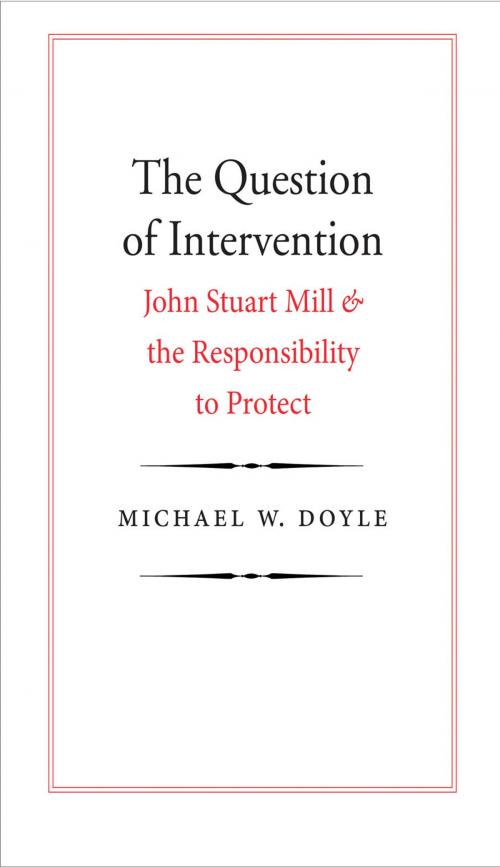The Question of Intervention
John Stuart Mill and the Responsibility to Protect
Nonfiction, Religion & Spirituality, Philosophy, Political, Social & Cultural Studies, Political Science, International, International Relations| Author: | Michael W. Doyle | ISBN: | 9780300210781 |
| Publisher: | Yale University Press | Publication: | January 1, 2015 |
| Imprint: | Yale University Press | Language: | English |
| Author: | Michael W. Doyle |
| ISBN: | 9780300210781 |
| Publisher: | Yale University Press |
| Publication: | January 1, 2015 |
| Imprint: | Yale University Press |
| Language: | English |
The question of when or if a nation should intervene in another country’s affairs is one of the most important concerns in today’s volatile world. Taking John Stuart Mill’s famous 1859 essay “A Few Words on Non-Intervention” as his starting point, international relations scholar Michael W. Doyle addresses the thorny issue of when a state’s sovereignty should be respected and when it should be overridden or disregarded by other states in the name of humanitarian protection, national self-determination, or national security. In this time of complex social and political interplay and increasingly sophisticated and deadly weaponry, Doyle reinvigorates Mill’s principles for a new era while assessing the new United Nations doctrine of responsibility to protect.
In the twenty-first century, intervention can take many forms: military and economic, unilateral and multilateral. Doyle’s thought-provoking argument examines essential moral and legal questions underlying significant American foreign policy dilemmas of recent years, including Libya, Iraq, and Afghanistan.
In the twenty-first century, intervention can take many forms: military and economic, unilateral and multilateral. Doyle’s thought-provoking argument examines essential moral and legal questions underlying significant American foreign policy dilemmas of recent years, including Libya, Iraq, and Afghanistan.
The question of when or if a nation should intervene in another country’s affairs is one of the most important concerns in today’s volatile world. Taking John Stuart Mill’s famous 1859 essay “A Few Words on Non-Intervention” as his starting point, international relations scholar Michael W. Doyle addresses the thorny issue of when a state’s sovereignty should be respected and when it should be overridden or disregarded by other states in the name of humanitarian protection, national self-determination, or national security. In this time of complex social and political interplay and increasingly sophisticated and deadly weaponry, Doyle reinvigorates Mill’s principles for a new era while assessing the new United Nations doctrine of responsibility to protect.
In the twenty-first century, intervention can take many forms: military and economic, unilateral and multilateral. Doyle’s thought-provoking argument examines essential moral and legal questions underlying significant American foreign policy dilemmas of recent years, including Libya, Iraq, and Afghanistan.
In the twenty-first century, intervention can take many forms: military and economic, unilateral and multilateral. Doyle’s thought-provoking argument examines essential moral and legal questions underlying significant American foreign policy dilemmas of recent years, including Libya, Iraq, and Afghanistan.















